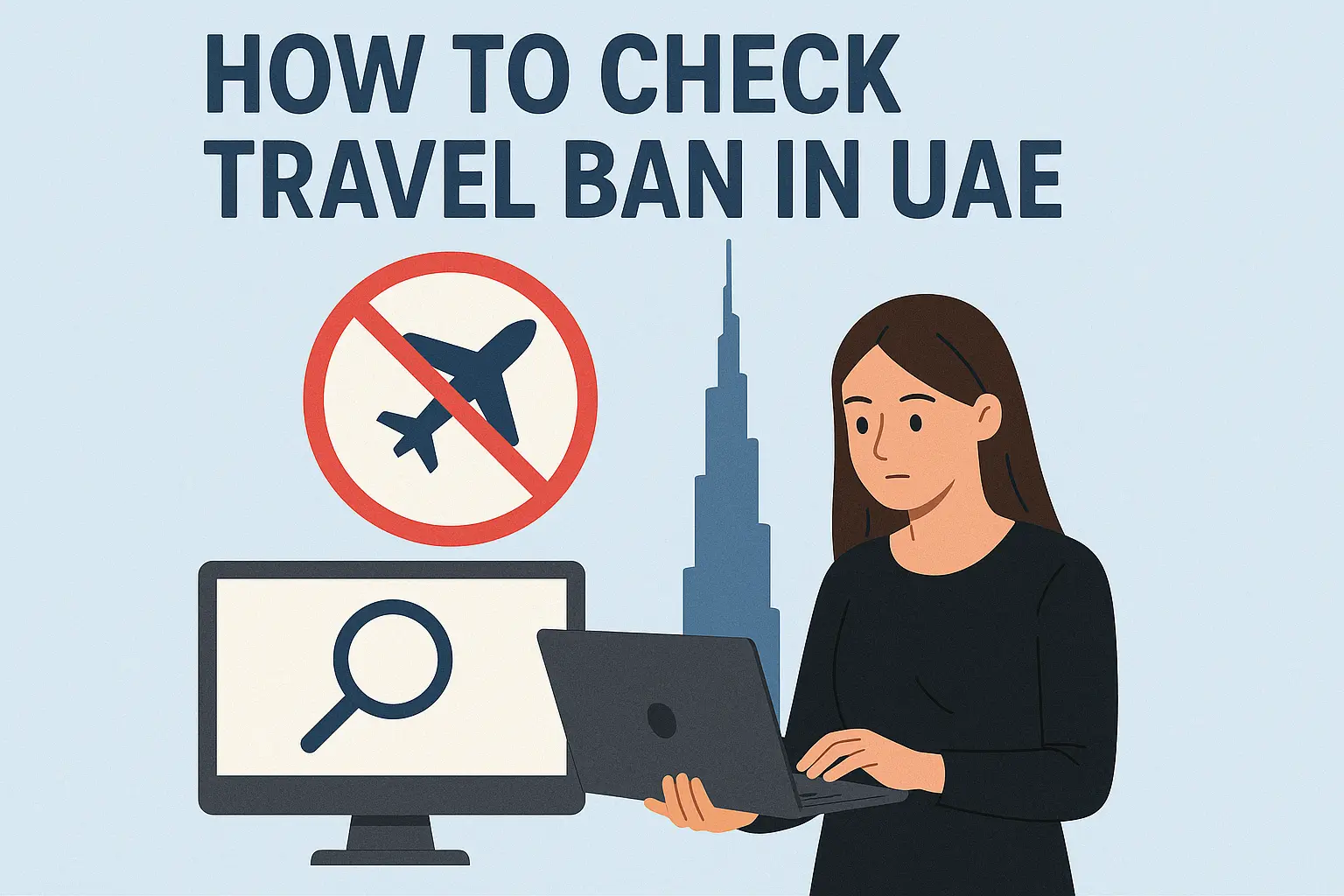Planning a trip to the dazzling metropolis of Dubai? You might be encountering two terms that sound similar but hold distinct purposes: Emirates ID and UAE visa.
This blog post is your one-stop guide to understanding the key differences between these two essential documents. We’ll delve into their specific functions, who needs them, and how they work together to navigate life in the United Arab Emirates.
What is an Emirates ID?
An Emirates ID, also known as an EID card, is the official identification document issued by the United Arab Emirates (UAE) government. It serves as a mandatory form of identification for all citizens and residents of the UAE and must be carried out at all times.
Eligibility:
- UAE citizens need to provide their original family book, original passport, and a personal picture with a white background measuring 4.5 x 3.5 inches.
- GCC nationals should have a valid passport and, if they are 21 or older, a valid Gulf card.
- If they are younger than 21, they need a valid Gulf card from one of their parents, or if they are younger than 15, they can submit a baby paper, a parent’s passport, or an Emirates ID.
- GCC nationals should also provide a document that proves they live in the UAE, such as a valid trade license, a certificate of enrollment in a UAE educational institution, an employment certificate, or an attested employment agreement.
- Expats, on the other hand, must provide a valid passport, a residency permit or entry permit, and a personal picture with a white background measuring 4.5 x 3.5 inches.
Benefits:
- Proof of Identity: The primary function of the Emirates ID is as official identification. It acts as a secure document with your personal information and biometrics, allowing verification for various purposes.
- Access to Services: The ID is crucial for accessing various government services, including healthcare, education, and employment-related procedures.
- Financial Transactions: Some banks in the UAE allow using the Emirates ID for specific financial transactions, such as ATM withdrawals or account access for certain banks, subject to their individual policies.
- Travel: While not a substitute for a passport in most cases, the Emirates ID can be used by UAE citizens for visa-free travel within the GCC (Gulf Cooperation Council) countries. Additionally, it allows them to utilise eGates and smart gates at specific UAE airports for faster immigration clearance.
- Other Uses: The ID may also be required for activities like obtaining a driving license, registering children in schools, applying for loans, or entering certain buildings and facilities.
What is a UAE Visa?
A UAE visa is an official permit issued by the UAE government, allowing foreign nationals to enter and stay in the country for a specific period and for a specific purpose. It acts as a temporary authorisation and is not a substitute for an Emirates ID.
Types of UAE Visas:
There are various types of UAE visas available, catering to different needs and durations of stay. Some common types include:
- Tourist Visa: Grants temporary entry for tourism or leisure purposes, typically valid for 30 or 60 days.
- Resident Visa: Allows extended stays in the UAE for purposes like work, study, or family reunification. Different types of residence visas exist, each with specific requirements and durations.
- Transit Visa: Permits travellers to pass through the UAE on their way to another destination, usually valid for 24 or 48 hours.
Benefits:
The benefits of a UAE visa depend on the specific type of visa you obtain. However, some general benefits of having a UAE visa include:
- The ability to live and work in the UAE: This is the most obvious benefit of having a UAE visa. With a visa, you can legally reside in the country and take up employment with a local company.
- Access to UAE’s world-class facilities: The UAE boasts some of the best infrastructure and facilities in the world, from healthcare and education to transportation and leisure. With a visa, you will have access to all of these amenities.
- Tax-free income: The UAE has no income tax, which means that you will keep all of the money you earn. This is a major advantage for expats who are looking to save money.
Key Differences Between Emirates ID and UAE Visa
Here is a table summarising the key differences between an Emirates ID and a UAE Visa:
| Feature | Emirates ID | UAE Visa |
| Purpose | Official identification document for UAE citizens and residents | Permission to enter and stay in the UAE for a specific purpose and duration |
| Eligibility | All UAE citizens and residents with valid visas | Foreign nationals |
| Validity | Indefinite (until renewed or cancelled) | Varies depending on the visa type (typically 30 days to several years) |
| Application Process | Apply at an authorised typing centre or Emirates ID service centre | Apply through a UAE embassy, consulate, or authorised visa processing centre |
| Issuance | Issued by the Federal Authority for Identity and Citizenship (FAIC) | Issued by the UAE government |
| Renewal | Required every five years for residents | Not applicable (requires re-application for a new visa) |
| Carried at all times | Required | Not required |
Additional Notes:
- While not required for entry, a valid Emirates ID is necessary for various activities within the UAE, such as opening bank accounts, renting an apartment, or working.
- Possession of a UAE visa does not automatically grant the right to live and work in the UAE. A residency visa is required for these purposes.
Conclusion
Understanding the distinct roles of the Emirates ID and UAE visa is crucial for navigating life in the UAE, whether you’re a resident or a visitor.
Key Takeaways:
- The Emirates ID is a mandatory identification document for all UAE citizens and residents, acting as official proof of identity. It allows access to essential services and must be carried out at all times.
- The UAE visa is a temporary permit granting foreign nationals permission to enter and stay in the UAE for a specific purpose and duration. Different visa types cater to various needs, like tourism or residency.
FAQs
Here are some frequently asked questions about Emirates ID and UAE visas:
Q: Does everyone need an Emirates ID?
A: Only UAE citizens and residents with valid visas need an Emirates ID.
Q: Can I travel within the UAE with an Emirates ID?
A: An Emirates ID allows you to travel within the UAE, but it is not a valid travel document for leaving the country.
Q: Can I get a job in the UAE with a tourist visa?
A: No, you cannot work in the UAE with a tourist visa. You need a residence visa with specific work authorisation to be employed legally.
Q: How long does it take to get an Emirates ID?
A: Typically, you can receive your Emirates ID within a few working days after your application is processed.
Q: How long does a UAE visa last?
A: The validity of a UAE visa varies depending on the type of visa. Tourist visas are typically valid for 30 or 60 days, while resident visas can last for several years.
Q: Can I renew my UAE visa?
A: Some types of UAE visas, like resident visas, can be renewed. However, tourist visas cannot be renewed and require a fresh application if you wish to remain in the UAE.
Q: What happens if I lose my Emirates ID or UAE visa?
A: If you lose your Emirates ID, you need to report it immediately and apply for a replacement. For a lost UAE visa, you might be able to apply for a replacement depending on the circumstances, but it’s best to consult with the relevant authorities (embassy, consulate, etc.) for specific guidance.
Q: Where can I find more information about Emirates ID and UAE visas?
A: You can find the latest and most accurate information on the official websites of the:
- Federal Authority for Identity and Citizenship (FAIC): https://icp.gov.ae/en/ (.gov.ae) faic.gov.ae]
- General Directorate of Residency and Foreigners Affairs (GDRFA): https://newlandchase.com/countries/united-arab-emirates/
- The UAE government:https://u.ae/en







